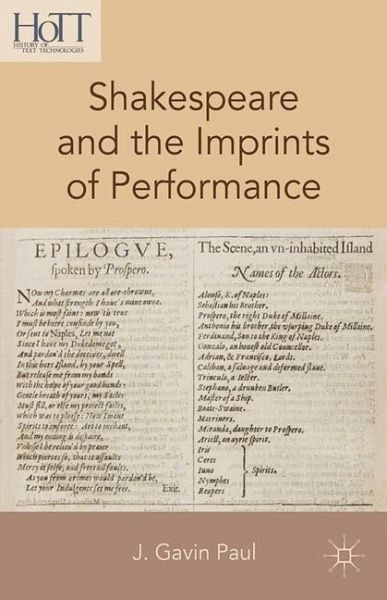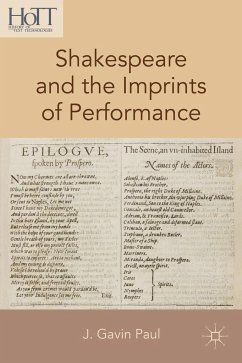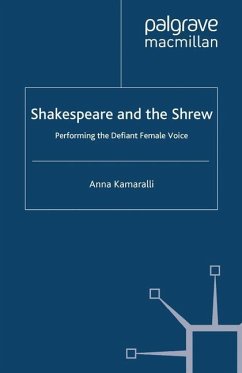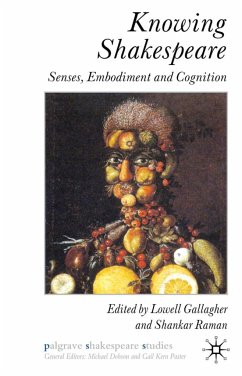
Shakespeare and the Imprints of Performance
Versandkostenfrei!
Versandfertig in 6-10 Tagen
38,99 €
inkl. MwSt.
Weitere Ausgaben:

PAYBACK Punkte
19 °P sammeln!
Within the study of drama, the question of how to relate text and performance-and what interpretive tools are best suited to analyzing them-is a longstanding and contentious one. Most scholars agree that reading a printed play is a means of dramatic realization absolutely unlike live performance, but everything else beyond this premise is contestable: how much authority to assign to playwrights, the extent to which texts and readings determine performance, and the capability of printed plays to communicate the possibilities of performance. Without denying that printed plays distort and fragmen...
Within the study of drama, the question of how to relate text and performance-and what interpretive tools are best suited to analyzing them-is a longstanding and contentious one. Most scholars agree that reading a printed play is a means of dramatic realization absolutely unlike live performance, but everything else beyond this premise is contestable: how much authority to assign to playwrights, the extent to which texts and readings determine performance, and the capability of printed plays to communicate the possibilities of performance. Without denying that printed plays distort and fragment performance practice, this book negotiates an intractable debate by shifting attention to the ways in which these inevitable distortions can nevertheless enrich a reader's awareness of a play's performance potentialities. As author J. Gavin Paul demonstrates, printed plays can be more meaningfully engaged with actual performance than is typically assumed, via specific editorial principles andstrategies. Focusing on the long history of Shakespearean editing, he develops the concept of the performancescape: a textual representation of performance potential that gives relative shape and stability to what is dynamic and multifarious.














